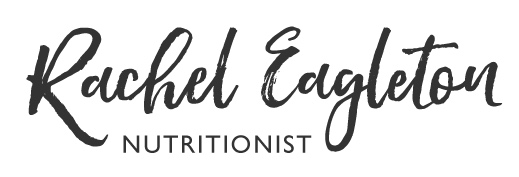Nutrition to power your paddling
/Written by Jess Liao, currently undertaking her external clinical placement with me as she nears the final year of her clinical nutrition studies. This week, she has chosen to intertwine her love of nutrition and dragon boating into a blog for us. Jess paddles with ACCA, training three times a week at Blackwattle Bay underneath the Anzac Bridge, as they gear up towards the last regatta of the season next month - the 2021 State Championships. You can follow Jess over on insta here: thenourishedbud
PRE-TRAINING
To eat, or not to eat? A common question that gets asked all the time.
Whilst overall intake is most important, pre-training nutrition can be a great way to promote performance and drive adaptations to your chosen exercise and in this case, dragon boating.
Fuelling before sessions lasting an hour or more comes down to carbohydrates (0.5-1g/kg of body weight). As a very general guideline, aim for at least 30g in the hour before. For reference, 1 banana is roughly 30g carbs. Make sure to choose a quick-digesting, moderate protein (for amino acid availability), low fibre, and low fat food source to limit stomach discomfort. Minimal fat and fibre? Why? Fat actually takes a while to digest, and can slow down the digestion of your other food (carbs & protein) which can negate the effects of a pre workout meal. Too much fibre has been shown to cause a tummy upset for some. So be mindful of that. Aim to have meals 2-4 hours before, or snacks 1-2 hours before. Below are some of my favourite examples:
If it's a morning training session and you prefer to train on an empty stomach, that's fine - just be mindful of what you've eaten the night before. This is when complex carbohydrates would be recommended as they typically take longer to digest, providing a longer lasting, and more sustained form of energy.
While pre-training nutrition is important, the broader picture of your diet as a whole has a huge influence on your performance. What I mean is that you can't just focus on your pre workout nutrition and think "she'll be right mate just had my protein shake, banana and pre workout. Sorted". While that's a great pre workout option, the other 2-5 meals around that meal throughout the course of your day are just as important.
Think of it like this. If you fill your tank with e91, but add 1L of e98, you can't expect the engine to run like it's got a full tank of e98. That's the same as nutrition, you can't expect to see your true performance potential if you are only fuelling for performance 5% of the time.
POST-TRAINING
Everyone's requirements post training will differ. Requirements will be influenced by the type of training you completed, the time until your next session, your goals, what you have already eaten that day, etc. This is the time where we want to refuel with carbohydrates and protein. Pair carbohydrates with protein (aim for 20-40g), add some vegetables, healthy fats and most importantly some H2O to rehydrate.
Carbohydrates are important to help replace the energy you used up. How much carbohydrate you need will depend on the intensity of your workout (e.g. endurance events use up more energy than strength training). Protein is important for repairing and rebuilding the muscles that have been "damaged" during training. It provides the body with amino acids, which are the building blocks for new muscle and for muscle repair - great for reducing muscle soreness.
To maximise your intake of fibre as well as an array of vitamins, minerals, and antioxidants, it is important in this meal to fill your bowl or plate with colourful vegetables – whether it is in the form of a wrap, one-tray bake, sandwich, or stir fry. I’m talking vegetables such as red/green/yellow peppers, red onions, sweet potato, kale, broccoli, purple cabbage, brussel sprouts, pumpkin, tomatoes, beetroot, or spinach. If you are leaning towards a post-workout smoothie, bowl of oats, or serving of yogurt, reach for fruits distinct in colour such as strawberries, blueberries, oranges, cherries, mangoes, papaya, red grapes, apples (with skin), kiwi fruit, or plums. More colours = more phytonutrients = more antioxidant and anti-inflammatory benefits.
Examples could be grilled salmon and roast veg, a chicken wrap, eggs & avocado on toast, tofu scramble, tinned tuna and crackers, yoghurt and a banana to name a few. Below are some of my favourite go-to’s:
If you’re not into water sports I think Jess’s ideas would be great after any workout! I’ve got lots more sports nutrition articles here on this blog. Some you might be interested in:
Sports Nutrition for teenagers
Rachel is a university qualified Clinical Nutritionist based in Balmain. She is also the busy working mum of two teenagers, so is practical and realistic with her advice . Rachel offers private consultations to improve your family's health and well-being. You can find her on Facebook and Instagram for more healthy tips and tricks.

















